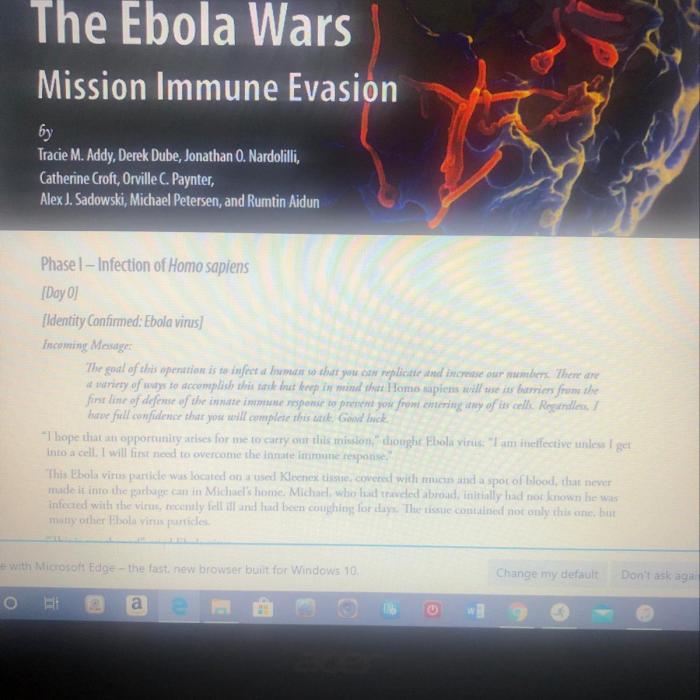The Ebola Wars Case Study Answer Key offers a comprehensive guide to understanding the challenges and complexities of the Ebola outbreak in West Africa. This analysis delves into the factors that hindered containment efforts, evaluates government and healthcare system responses, and examines the socioeconomic impacts of the crisis.
The study provides valuable lessons learned and recommendations for improving preparedness and response mechanisms for future outbreaks.
Background on the Ebola Virus and the Outbreak in West Africa: The Ebola Wars Case Study Answer Key

The Ebola virus is a highly contagious and often fatal disease that affects humans and non-human primates. It is transmitted through contact with bodily fluids of infected individuals or contaminated surfaces. The Ebola outbreak in West Africa from 2014 to 2016 was the largest and most severe in history, claiming over 11,000 lives.
Challenges in Containing the Outbreak
Containment efforts were hindered by several factors, including:
- Lack of infrastructure and resources in affected countries
- Cultural practices that facilitated transmission
- Political instability and conflict
International organizations, such as the World Health Organization (WHO), played a crucial role in coordinating response efforts.
Government and Healthcare System Responses, The ebola wars case study answer key
Government responses to the outbreak varied in effectiveness. Some governments, such as Guinea, implemented strong containment measures and mobilized resources early on. Others, like Liberia and Sierra Leone, faced challenges in implementing effective response plans due to weak healthcare systems and political instability.
Healthcare systems in affected countries were overwhelmed by the outbreak, struggling to provide adequate care and prevent further transmission.
Socioeconomic Impacts of the Outbreak
The outbreak had significant socioeconomic consequences:
- Business closures and loss of income
- Stigma and fear
- Disruption of daily life
The outbreak also had a negative impact on regional and global economies.
Lessons Learned and Recommendations
The Ebola outbreak highlighted the need for improved preparedness and response mechanisms for future outbreaks. Key lessons learned include:
- Importance of early detection and containment
- Need for robust healthcare systems
- Role of international cooperation
Recommendations for improving outbreak response include:
- Strengthening surveillance and early warning systems
- Investing in healthcare infrastructure and workforce
- Promoting community engagement and education
Query Resolution
What were the key challenges in containing the Ebola outbreak?
The outbreak was hindered by factors such as lack of infrastructure, cultural practices, political instability, and inadequate international response.
How did government and healthcare systems respond to the outbreak?
Governments and healthcare systems varied in their effectiveness, with some demonstrating strengths in containment and treatment, while others faced challenges.
What were the socioeconomic impacts of the Ebola outbreak?
The outbreak caused significant economic losses due to business closures and loss of income, and led to social impacts such as stigma, fear, and disruption of daily life.

